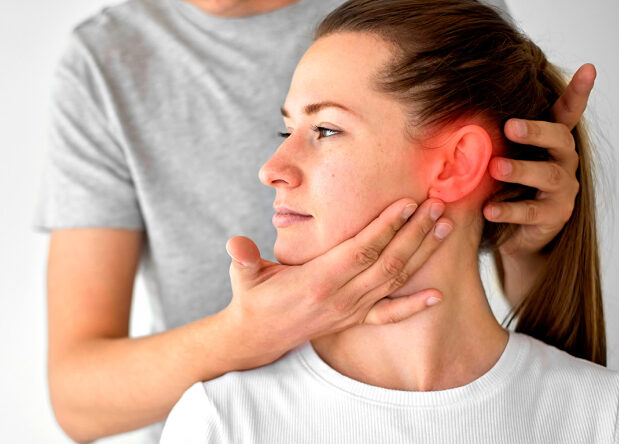Frequent problems
Ears and vestibular disorders
Tinnitus
Abnormal auditory sensation that does not originate from the environment and may be caused by hearing loss, a neurological disorder or a somatosensory problem related to the jaw and neck. Medical follow-up is strongly recommended before undertaking physiotherapy treatments to rule out neurological and audiological problems.
Orofacial pain
Pain affecting the face (eyes, nose, ears, mouth) that may be caused by a disorder of the jaw, neck, nervous system or cranial nerves.
Dizziness
Disorders manifested by a variety of symptoms (vertigo, instability, loss of balance) and may be caused by problems of the nervous, cervical, vestibular, metabolic or psychological systems. Dizziness of a cervical, vestibular or motor nature responds well to physiotherapy.
Dizziness
Sensation of movement, often rotatory, caused by vestibular, neurological, migraine or medical problems. Benign paroxysmal positional vertigo (BPPV) is the most common and responds well to physiotherapy treatments.
Vestibular disorders
Pathologies causing vertigo, dizziness, loss of balance and visual symptoms, including BPPV, neuronitis, labyrinthitis and vestibular migraine. These conditions are treated using repositioning techniques and vestibular and visual rehabilitation exercises, with a very high success rate.
Persistent postural and perceptual vertigo or dizziness
A syndrome manifested by dizziness without rotary vertigo and fluctuating instability caused by environmental or social stimuli (e.g. crowds). It is known by the acronym PPPD (Persistent Postural-Perceptual Dizziness) and is not caused by any other neuro-otological disorder. Physiotherapy treatment is based on re-education of motor, visual and vestibular reflexes.


